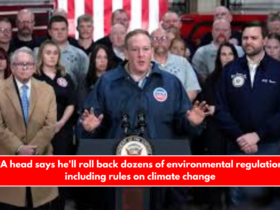Is Vlad criticizing the Donald? It certainly looks like it.
A few days ago, Russia’s prime-time “60 Minutes” show congratulated Melania Trump on her husband’s presidential victory by airing a handful of nude images of the future first lady that had previously appeared in GQ Magazine in 2000.
President-elect Trump may or may not have considered the images insulting, but he was most likely irritated by their prominence in Putin’s propaganda media. Make no mistake: Putin, not the show’s arrogant hosts Yevgeny Popov and Olga Skabeeva, decided to show the pictures. The fact that both were plainly amused highlighted the extent to which the images were intended to shame rather than celebrate.
Things become worse. Not only did Putin show the images, but he did so before openly congratulating Trump on his victory and rejecting the Washington Post’s allegation that he had spoken with Trump over the phone.
None of this is coincidental. Putin is certainly conveying some sort of message. But what, and to whom? Several possibilities spring to mind.
Perhaps Putin is implying that he has embarrassing “kompromat” on him. Rumors of such incriminating materials have circulated since Trump’s first presidency, but they have not been confirmed. If this is accurate, Putin may be telling Trump not to go too far with his peace aspirations.
It’s also possible that Putin is playing hard to get, given his delayed congrats and rejection of the phone call. In this possibility, which does not contradict the first, Putin may tell Trump that he does not need him or the United States to begin negotiations, and that he will finish the war with Ukraine on his own. In other words, Putin is instructing Trump to keep out of his business.
Finally, it’s probable that Putin’s intended audience is Russians, both the masses and the elites. As a result, Putin is completely in power, but Trump is the cuckolded husband who is unable to behave like a tough Russian, a “muzhik,” and keep his wife under control. Many ordinary Russians will certainly laugh along with Skabeeva, wondering how Trump and his insane Americans can possibly outmaneuver their brilliant leader. Russian elites, on the other hand, will take pleasure in Trump’s potential rage, although they may see through Putin’s obvious attempt to bolster his position by making Trump appear weak.
Regardless of which interpretation is right — and they all could be — the truth remains that Putin has little to brag about. His interactions with the Trumps are merely games, implying weakness and failure.
Do serious leaders actually publish naked photos of their interlocutors’ spouses? Do serious individuals truly believe that such disgusting displays can scare their opponents? Can they not comprehend that such cheap techniques will just make them appear ridiculous?
We don’t know how much Putin knows about the true situation on the front lines in Ukraine. Is he aware that well over 700,000 Russians have been murdered or wounded?
Is him aware that around 1,500 soldiers die or are injured every day? His odd claim at the recent Valdai conference that Russia had surrounded hundreds of Ukrainians in Kursk Province reveals that he is either entirely out of touch with reality or is simply lying.
Putin certainly understands that his own staff are publicly concerned about the unsustainable nature of his economic policies, but how can we be certain that he is not shielded from negative news? Subordinates worldwide tell autocrats exactly what they want to hear. Putin may be living in blissful ignorance.
The crucial point is that, whether or not Putin is aware of the true state of circumstances in Ukraine, Russia, and on the front lines, Russia is losing the war, and its hand in any future discussions will be weak.
Russia’s human casualties are unsustainable, unless North Korean leader Kim Jong Un decides to move his whole army to Russia. Recent Russian territorial advances, curiously referred to as substantial or crucial by naïve Western observers, account for less than 0.5 percent of Ukraine’s total land.
Putin will bluster and bluff, of course, but he will be unable to make demands if both Americans and Ukrainians understand how weak his position is. Ukrainians know. The question is: Does Trump?
Alexander J. Motyl is a professor of political science at Rutgers University-Newark. He is the author of ten nonfiction books, including ” Imperial Ends: The Decay, Collapse, and Revival of Empires” and ” Why Empires Reemerge: Imperial Collapse and Imperial Revival in Comparative Perspective.” He is also an expert on Ukraine, Russia, and the USSR, as well as nationalism, revolutions, empires, and theory.













Leave a Reply